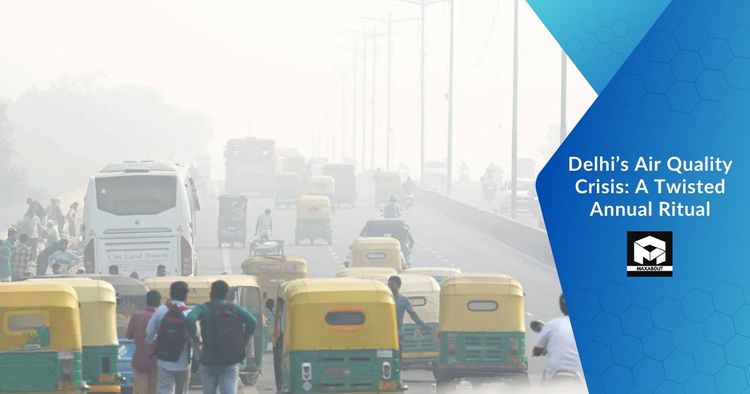Introduction
In what has become an unfortunate annual occurrence, Delhi finds itself grappling with a severe air quality crisis, earning the unenviable distinction of being the most polluted city globally. The Air Quality Index (AQI) consistently registers at 'Hazardous' levels, prompting the Delhi government to contemplate the reintroduction of the odd-even rule. This measure, previously employed to address pollution during festive seasons, is slated for implementation from November 13 to 20.
Understanding the Odd-Even Rule
The odd-even rule, first instituted in 2016, stands as a traffic management strategy crafted to mitigate the surge in air pollution during festive periods. Under this regulation, vehicles gain road access based on the last digit of their registration number. On odd dates, cars with odd-numbered plates are permitted, while even-numbered plates have their turn on even dates. The primary objective is to curtail traffic volume, subsequently minimizing the emission of pollutants from vehicle exhaust systems. It is worth noting that this rule exclusively applies to four-wheeler passenger vehicles using petrol or diesel, with exemptions for CNG cars, bikes, and commercial vehicles.
Postponing the Odd-Even Rule: Examining Validity and Impact
The proposal to reinstate the odd-even rule in 2023 underwent rigorous scrutiny in the Supreme Court to assess its validity and evaluate the benefits against the perceived inconvenience to citizens. During the hearing, the government presented a comprehensive report indicating a 13 percent reduction in air pollution during the prior implementation of the rule. However, the court scrutinized the report, highlighting that vehicles contribute a mere 17 percent to the overall pollution in the city, thereby questioning the substantial impact of a 13 percent reduction in the broader context. Concerns were raised regarding whether the benefits justified restricting the freedom of the people.
Other Considerations: Changing Air Quality and Future Strategies
Recent days have witnessed a positive transformation in air quality, attributed in part to timely rain showers, leading to a noteworthy drop in the AQI from over 450 to around 300. In light of this favorable development, the Delhi government made the decision to postpone the implementation of the odd-even rule until after Diwali. This postponement allows for a comprehensive reassessment of the situation to determine the continued necessity of the policy in curbing pollution.
Beyond Odd-Even: Artificial Rain and Collective Action
In response to the Supreme Court's directive to explore additional measures, the Delhi government is actively considering artificial rain as a solution to precipitate pollutants to the ground and cleanse the air. The court has underscored the importance of adopting diverse strategies to combat air pollution. As responsible citizens, contributing to cleaner air involves judicious vehicle usage and a preference for public transport whenever feasible. Through collective adoption of these practices, citizens can actively participate in further reducing pollution caused by tailpipe emissions and contribute to the overall well-being of our city.

